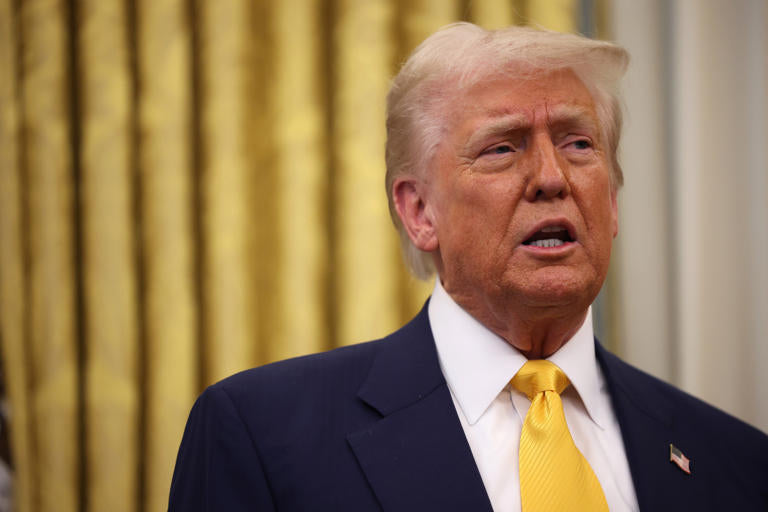
Trump Ends Venezuelan Oil Permit
Ashton RouthierShare
Chevron’s Venezuela License Revoked: What It Means for Oil Markets and Supply Chains
The energy sector is once again at the center of geopolitical tensions as former President Donald Trump announced the termination of a U.S. permit that allowed Chevron to pump and export Venezuelan oil. The decision effectively cuts off a key financial lifeline for Venezuela’s oil industry, which has relied on this agreement to sustain crude production despite U.S. sanctions.
Chevron, which has maintained a presence in Venezuela’s energy sector for decades, responded cautiously, stating it is "considering the implications" of the move. With global oil supply chains already strained, the decision raises questions about the future of Venezuelan crude exports, U.S. energy security, and the broader economic impact on both nations.
Why This Matters
The decision to revoke Chevron’s license, officially known as a general license, follows growing concerns over Venezuela’s 2024 presidential election, which was widely condemned as undemocratic. The U.S. initially granted the permit in 2022, under President Joe Biden, as a step toward supporting democratic engagement in Venezuela. However, after Venezuela’s President Nicolás Maduro was sworn in for a third term despite credible evidence of electoral fraud, Trump moved to reverse what he called "Biden's concessions to Maduro."
The U.S. has long enforced economic sanctions on Venezuela, citing corruption, human rights abuses, and electoral fraud as key concerns. However, the revocation of this permit could destabilize Venezuela’s already struggling economy and create ripple effects in the global oil market.
According to energy analysts, Venezuela exported 222,000 barrels per day of crude to the U.S. between January and November 2024. While this is a relatively small share of total U.S. crude imports, it accounted for nearly 10% of Chevron’s global liquid output. Experts say that while the financial benefit to Caracas was limited, the agreement did allow Venezuela’s state-run oil company, PDVSA, to stabilize and slightly increase crude production.
The Impact on Oil Markets and Supply Chains
With Venezuela holding the largest proven oil reserves in the world, its ability to export crude remains a point of contention in global energy markets. The decision to revoke Chevron’s license could lead to several key outcomes:
- Further strain on Venezuela’s oil industry: Without U.S. exports, Venezuela may struggle to find buyers, especially as global sanctions tighten.
- Disruptions to global crude supply chains: While Venezuelan oil made up a small fraction of U.S. imports, alternative buyers may be harder to secure, potentially affecting market stability.
- A potential increase in oil prices: If supply constraints emerge from this decision, oil prices could rise as markets adjust.
From an STW Enviro perspective, this development highlights the need for increased efficiency and innovation in oil transportation and infrastructure stability.
The sudden disruption of oil exports creates risks for both environmental safety and economic stability. With Venezuela now forced to seek alternative storage or buyers for its crude, the possibility of improper handling, pipeline disruptions, or increased oil spills rises significantly. Our TransSeal technology can play a role in stabilizing oil infrastructure, ensuring safer and more sustainable operations even in volatile regions.
Additionally, the storage and handling of stranded oil—especially in areas with inadequate facilities—can increase the risk of spills and contamination. Our Pristine Sea oil spill response technology is designed to mitigate the risks associated with oil transport disruptions, ensuring that environmental damage is minimized.
What Comes Next?
While Trump’s decision has immediate implications, the long-term impact on U.S.-Venezuela energy relations remains uncertain. The Biden administration had previously justified the Chevron agreement as a way to encourage democratic reforms, but with Maduro maintaining power, the future of U.S. engagement with Venezuela’s oil sector is unclear.
For Chevron, this move raises questions about its continued presence in Venezuela’s oil fields. With its operations now in limbo, the company may have to restructure its investments or find alternative markets to offset losses from Venezuelan crude.
Meanwhile, as Venezuela scrambles to find new buyers, the challenge of storing excess crude and managing transportation risks will grow. Ensuring that stranded oil does not lead to environmental hazards should be a priority—not just for Venezuela, but for the global oil market as a whole.
At STW Enviro, we remain committed to providing innovative solutions that enhance oil infrastructure stability and spill prevention, especially in times of geopolitical uncertainty. As industries navigate these evolving challenges, the need for advanced spill containment and efficient transport solutions will be more critical than ever.